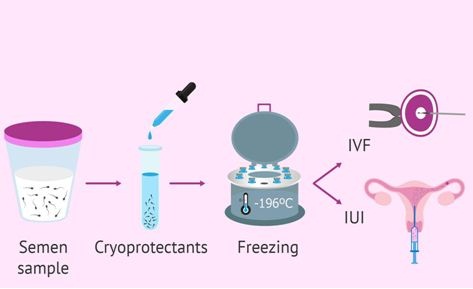Freezing
Embryo Freezing
Embryo freezing or embryo cryopreservation is a technique that enables couples to store their embryos to be used later. Unlike egg freezing and sperm freezing, which involve the preservation of either male or female gametes, embryo freezing involves the retrieval of both, followed by fertilization and storing the resultant embryo. This is specially important in IVF where only 1 to 3 embryos are used for the procedure and the remaining can be stored for future use.

Who can opt for embryo freezing?
Embryo freezing can act as a backup if the IVF or ICSI procedure does not work out in the first go.
A couple wishes to save the embryos if either of the two is likely to undergo major surgery or treatment that might affect their fertility.
A couple wishes to have a second baby in future.

Various advantages of embryo freezing
- Embryo cryopreservation increases the chances of successful conception by providing the intended parents with additional cycle opportunities.
- Frozen embryo transfer is comparatively cheaper than fresh embryo transfer as these potentially lower the number of treatment cycles required to achieve pregnancy.
- Embryo cryopreservation helps to alleviate the risks imposed by the increased progesterone levels with advanced age. This can reduce the receptivity of the uterine lining thereby making it difficult to implant the embryo.
- Freezing of all embryos in an IVF cycle and transferring later in a frozen embryo transfer cycle helps prevent complications like OHSS in some patients undergoing IVF
Egg Freezing
Egg freezing is a method of storing your eggs to preserve fertility and allow you to have a baby later. It’s an option usually considered by women not in a position to have a baby, or whose fertility is at risk for medical reasons.
The egg freezing process, as with an IVF cycle helps all the eggs recruited in that cycle to mature. Ovarian stimulation is done by giving hormone injections for 8 to 14 days. Don’t worry, it’s not scary, and your fertility nurse will help you through the process. During the stimulation period, you’ll be monitored via blood tests and ultrasounds.
Sperm freezing
Also known as semen cryopreservation or sperm banking, sperm freezing is a method of preserving the sperm cells of a male to be used in future. Reports have shown that the longest reported successful storage was about 24 years, which clearly means that sperm can be stored for a very long period of time without compromising with their quality and viability. The sperm, once collected, is kept in liquid nitrogen at -196 C, inside a sperm bank. Frozen sperms can be utilized for in vitro fertilization (IVF) or intrauterine insemination (IUI) techniques.

Who can opt for sperm freezing?
Sperm freezing can be opted by any male who wishes to preserve his Fertility owing to some medical or personal reasons. This includes:
- Men whose sperm quality is deteriorating at a very fast pace
- Use of certain medication or undergoing medical treatments that might have a negative impact on their fertility.
- Cancer patients who have to undergo chemo and radiation therapy as these drastically impact sperm quality.
- Chronic health issues like diabetes that can increase the risks of erectile dysfunction
- Men planning to donate their sperms to be used by other couples
- Men who have been prescribed to undergo vasectomy owing to some underlying medical condition.
